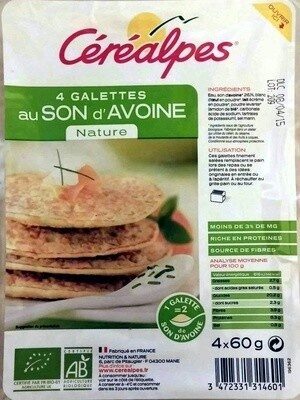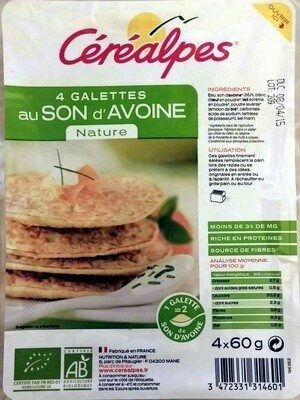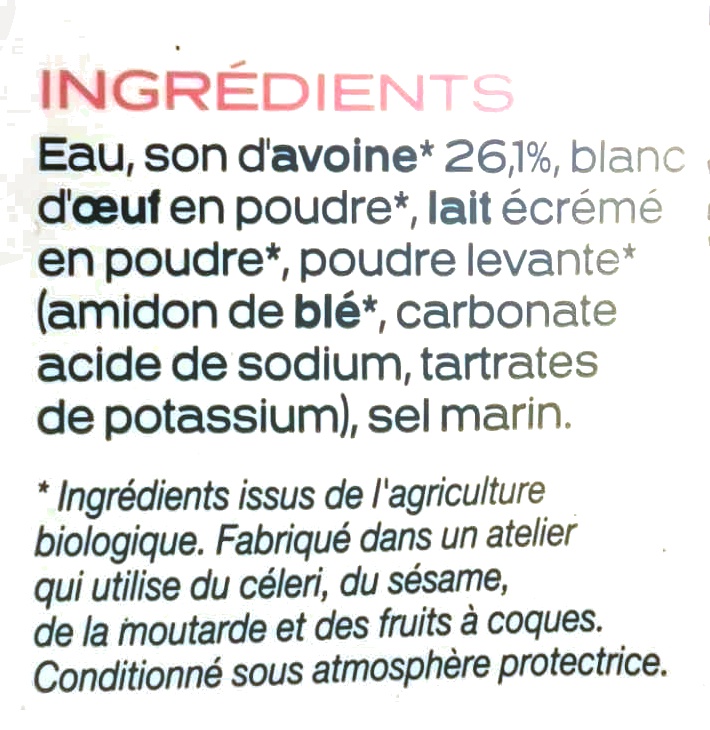4 galettes au SON d'AVOINE Nature - Céréalpes - 240 g
This product page is not complete. You can help to complete it by editing it and adding more data from the photos we have, or by taking more photos using the app for Android or iPhone/iPad. Thank you!
×
Barcode: 3472331314601 (EAN / EAN-13)
Quantity: 240 g
Packaging: Plastic
Brands: Céréalpes
Categories: Aliments d'origine végétale, Aliments et boissons à base de végétaux, Céréales et dérivés, Céréales et pommes de terre
Labels, certifications, awards:
Organic, EU Organic, Source of fibre, Source of proteins, FR-BIO-01, Green Dot, High fibres, High proteins, Made in France, AB Agriculture Biologique, Moins de 3% de MG


Manufacturing or processing places: France
Stores: Biocoop
Countries where sold: France
Matching with your preferences
Environment
Packaging
Transportation
Labels
Report a problem
Data sources
Product added on by basileus
Last edit of product page on by naruyoko.
Product page also edited by date-limite-app, foodvisor, grumpf, kiliweb, maelysd12, packbot, quechoisir, roboto-app, yuka.VDdFZUVhNVJ2dnRRdmNZLzl6RGw1ZE1sN0p1dFhtRzlCdlFJSWc9PQ, yuka.sY2b0xO6T85zoF3NwEKvlmZJTvbuvm39LjfgmWey7cuhK4XUW_As-5DzLqg.












